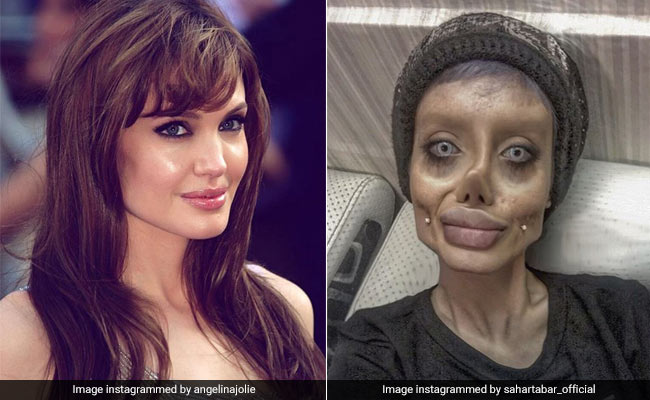Facelift Rancho Cucamonga: Turn Back the Clock with Advanced Anti-Aging Solutions
Facelift Rancho Cucamonga: Turn Back the Clock with Advanced Anti-Aging Solutions
Blog Article
Checking Out the Mental and Social Variables That Drive Individuals to Consider Plastic Surgery as a Means of Enhancement
The choice to go after cosmetic surgery commonly expands beyond plain looks, linking with social and psychological characteristics that warrant thorough exam. Factors such as self-worth, prevalent social charm requirements, and the prevalent influence of social media sites assemble to form individual motivations for medical improvement. As these impacts come to be progressively famous, understanding the underlying cultural and psychological contexts is important. What stays to be checked out is the profound effect these variables have not only on individual identity yet likewise on more comprehensive social norms and values surrounding charm and acceptance.
The Duty of Self-confidence
Self-esteem considerably affects an individual's decision to pursue cosmetic surgery. People with low self-confidence typically perceive themselves in an adverse light, leading to sensations of inadequacy regarding their physical appearance. This negative self-perception can drive them to look for surgical treatments as a method of boosting their self-image. The need for improvement in one's look is often connected to an idea that such modifications will boost their overall self-worth and self-confidence.

Ultimately, the role of self-esteem in the decision-making process concerning plastic surgery highlights the complicated interaction in between body image, individual complete satisfaction, and mental health and wellness. Recognizing this partnership is critical for health care specialists to make sure that patients are making educated choices rooted in realistic expectations and psychological health.
Social Elegance Specifications
Influenced by prevalent media portrayals and social stories, societal beauty standards play an important role fit people' understandings of their own bodies. These requirements are typically characterized by an idealized kind of appeal that highlights traits such as youthful vigor, slimness, and balance. As these suitables are bolstered through different networks, consisting of advertising, television, and film, individuals regularly internalize these messages, bring about discontentment with their all-natural look.
The ramifications of these social norms prolong past visual preferences; they can impact self-esteem, mental health and wellness, and interpersonal connections. People that perceive themselves as falling brief of these standards may experience feelings of insufficiency, prompting a need for plastic surgery as a way of achieving societal authorization. This quest is frequently fueled by the idea that adapting these perfects will enhance not only physical appearance yet likewise social standing and individual gratification.

Influence of Social Network
The influence of social beauty criteria is further intensified by the rise of social media sites platforms, where curated pictures and idyllic depictions of beauty are ubiquitous. Individuals are frequently subjected to filtered and edited photos, which usually illustrate unattainable physical features. This exposure grows a society of contrast, leading people to evaluate their own appearance against these typically impractical standards.
Social media influencers and celebrities frequently advertise aesthetic procedures, normalizing the notion that surgical improvements are a sensible methods for achieving societal perfects (plastic surgery rancho cucamonga). The presence of these enhancements can develop a perception that undergoing plastic surgery is a common technique, consequently influencing individuals to take into consideration similar treatments as a path to improved self-confidence More about the author and social approval
Furthermore, the interactive nature of social media sites permits prompt comments via sort and comments, further reinforcing the wish to satisfy prominent beauty standards. Such communications can intensify sensations of inadequacy and drive people toward plastic surgery as a means of getting recognition. Ultimately, social media plays an essential role in forming understandings of charm, which substantially impacts the decision-making procedures bordering cosmetic surgical treatment.

Social Point Of Views on Appearance
Throughout numerous societies, assumptions of look are deeply rooted in historical, social, and financial contexts, forming people' sights on charm and value. In several cultures, appearance serves as a considerable pen of identification, influencing social standing, specialist possibilities, and individual relationships. As an example, in some cultures, light skin is often related to wealth and advantage, while others may glorify darker skin tones as icons of stamina and authenticity.
In addition, conventional elegance requirements are commonly continued via cultural stories, media representations, and household affects, resulting in differing ideals throughout different areas (plastic surgery rancho cucamonga). In Western cultures, the focus on young people and fitness commonly drives individuals towards aesthetic enhancement, while in particular Eastern cultures, even more subtle Extra resources modifications straightened with conventional visual appeals might be favored
Globalization and the proliferation of digital media have actually further complicated these characteristics, producing a hybridization of elegance ideals that transcends geographical limits. As people progressively browse these cultural narratives, the pressure to adjust to certain look standards can result in the wish for plastic surgery, showing a complex interplay of personal desires and social worths. Understanding these cultural perspectives is important in resolving the inspirations behind cosmetic surgery considerations.
Psychological Impacts of Plastic Surgery
Numerous people looking for cosmetic surgical procedure record experiencing profound psychological influences that can considerably change their self-perception and emotional health - plastic surgery rancho cucamonga. The need for physical enhancement frequently comes from underlying issues such as low self-worth, body dysmorphic condition, or societal stress pertaining to elegance requirements. For some, the instant post-operative stage can result in a short-term boost in confidence and satisfaction with their look, promoting a feeling of empowerment
Nonetheless, these positive sensations may not be sustaining. Research study shows that while some individuals experience improved self-worth, others may encounter increased stress and anxiety or anxiety if their assumptions are not met. This disparity can occur from impractical ideals bolstered by media representation and social narratives bordering charm.
Additionally, the emotional ramifications of cosmetic surgery expand beyond the person. Relationships with friends and family may be stressed as social characteristics shift, causing feelings of isolation or alienation. Inevitably, the psychological effects of cosmetic surgery are diverse and intricate, requiring cautious factor to consider by both potential patients and health care companies to make certain informed decision-making and practical expectations.
Final Thought
Finally, the choice to pursue cosmetic surgical treatment is substantially affected by a combination of self-esteem issues, societal appeal standards, and cultural point of views on appearance. The prevalent reach of go right here social media sites further aggravates these pressures, promoting unrealistic ideals that people frequently make every effort to attain. Comprehending these mental and social aspects is necessary for dealing with the motivations behind plastic surgery, highlighting the requirement for a more nuanced conversation bordering elegance and self-acceptance in modern culture.
The decision to go after cosmetic surgical procedure typically prolongs past plain aesthetic appeals, intertwining with social and psychological dynamics that warrant thorough examination. Ultimately, social media plays a critical role in shaping understandings of appeal, which significantly impacts the decision-making procedures bordering cosmetic surgery.
As people significantly browse these social stories, the pressure to conform to particular look standards can lead to the need for cosmetic surgical procedure, mirroring an intricate interaction of social worths and personal aspirations.In final thought, the decision to seek cosmetic surgical procedure is considerably influenced by a mix of self-worth concerns, social charm standards, and social point of views on look. Recognizing these social and psychological elements is essential for addressing the inspirations behind cosmetic surgical procedure, highlighting the need for a more nuanced conversation bordering elegance and self-acceptance in contemporary society.
Report this page